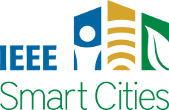Foreword: Knowledge-Based Economy in Smart Cities
Written by Kithinji Muriungi, Guest Editor
The advances in Industry Revolution 4.0 (IR4.0) is highly dependent on the efficient use of information and data from acquisition, processing, analyzing, and decision making. The adoption of IR 4.0 in enhancing the knowledge-based economy will be a significant factor across many industry sectors. Unlike the previous physical resource-based economies that drove the advancement of the previous industrial revolution, IR 4.0 plays an important role in making smart cities sustainable, liveable, safe, and efficient. Innovation in the digital transformation era would have several roles in optimizing the knowledge economy in many different application areas.
This special issue of the IEEE Smart Cities eNewsletter on the Knowledge-based Economy in Smart Cities focuses on highlighting topics like smart education, knowledge and innovations management, digital transformation, sustainable innovation models and frameworks, applications of innovations, that may take a STEM/STEAM approach, can help enhance service delivery across a smart city. Commercialization of research and knowledge-based innovations and innovative operations and processes in smart cities with a keen emphasis on the knowledge-based economy are discussed in some of the articles featured.
Four articles that focus on different concepts within the above-mentioned topics are featured in this issue.
The first article, Empowering Education with XR Technology in Smart Cities, written by Prof. Eleni Mangina and Prof. Fridolin Wild, discusses X-reality technologies' impact on education, especially in smart cities. The article addresses different cyber-physical education concepts while explaining their challenges, opportunities, constraints, and implications in building an educational metaverse.
The second article, entitled Developing Smart Cities Courses in Undergraduate Curricula: Engineering and Beyond, was written by Mohammad Upal Mahfuz, Associate Professor of Electrical Engineering at the University of Wisconsin-Green Bay in Wisconsin. In this article, the author summarizes two self-paced online developed courses at the University of Wisconsin-Green Bay, namely, “An Introduction to Smart Cities” and “Smart Cities: Engineering the Future.” These two courses have no textbooks but are based on scholarly articles from technical journals and conference proceedings in the field of smart cities.
The third article, namely Smart Education for Smart Cities, authored by Eng. Toroitich Patrick Yegon from Kenya discusses the skills, value chain, knowledge development, and application of a smart education system to increase access, collaboration, life-long development, equity and inclusivity, and responsiveness.
The fourth article, STEM Vs STEAM Approach Dilemma in the Innovation Ecosystem for Smart Cities Sustainability, was co-authored by Eng. David Mulongo, Dr. Kiyeng Chumo, Isaac Wainaina, and Kithinji Muriungi from Nairobi, Kenya, with affiliation in Konza Smart City. In this article, the authors address the need to have a STEAM approach in a smart city innovation ecosystem instead of having STEM, arts, humanities, and entrepreneurship as independent, standalone concepts.
As a guest editor of the April special issue “Knowledge-based Economy in Smart Cities,” I would like to extend my gratitude to the authors, the IEEE Smart Cities Publications Committee, and the IEEE staff for their unswerving support.
This article was edited by Bernard Fong
To view all articles in this issue, please go to April 2022 eNewsletter. For a downloadable copy, please visit the IEEE Smart Cities Resource Center.

To have the eNewsletter delivered monthly to your inbox, join the IEEE Smart Cities Community.
Past Issues
To view archived articles, and issues, which deliver rich insight into the forces shaping the future of the smart cities. Older eNewsletter can be found here. To download full issues, visit the publications section of the IEEE Smart Cities Resource Center.



